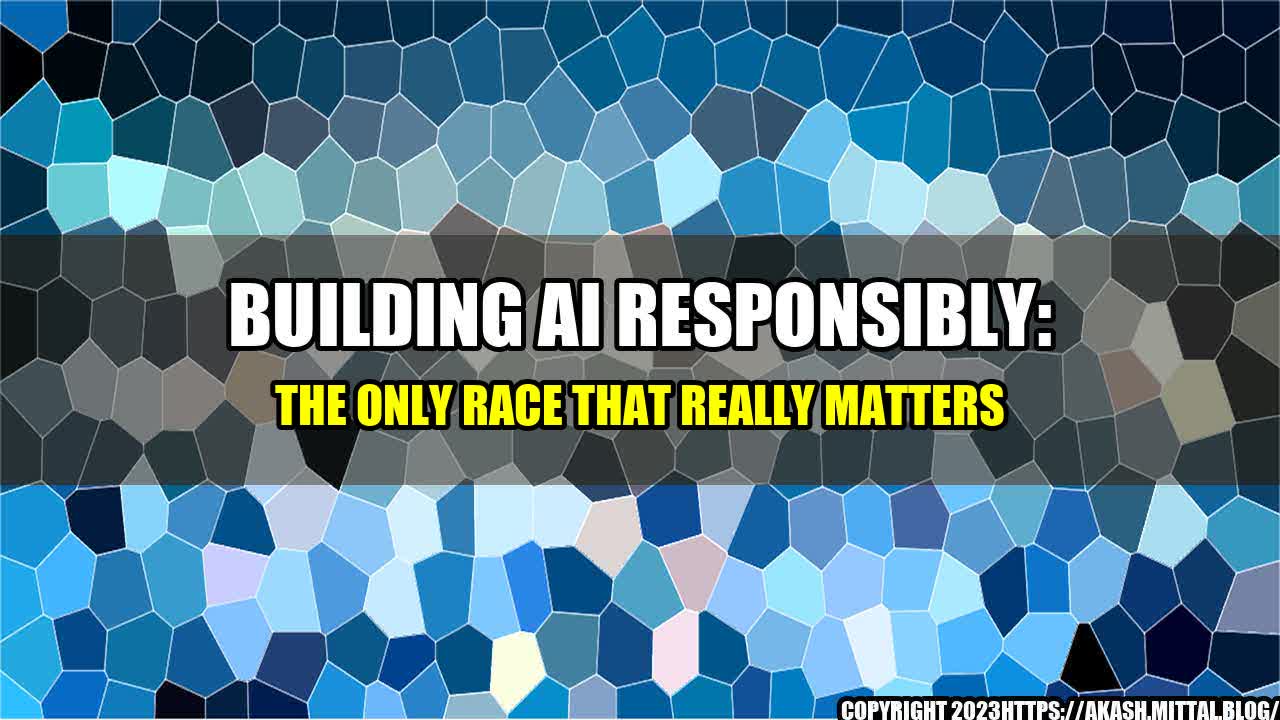I recently read a story about a man who was misidentified by facial recognition technology and wrongfully arrested by the police. This man's life was turned upside down because of a flaw in the system that was supposed to make our lives easier and safer. It made me wonder: how often do we blindly trust technology without considering the consequences?
Google CEO, Sundar Pichai, has been thinking about this as well. In a recent article for the Financial Times, he highlighted the importance of building AI responsibly - not just for the sake of ethics, but for the sake of progress and innovation.
"The only true competition in the AI space is the race to be more responsible," Pichai wrote. "The opportunity to use AI to improve people's lives is immense. But with any new technology, there will be challenges."
So just how can we build AI responsibly? Pichai offers some quantifiable examples:
- Limiting bias: Pichai writes that Google has taken steps to address possible bias in their AI systems, such as creating a diverse dataset for testing.
- Transparency: By being upfront about what their AI can and cannot do, companies can avoid creating unrealistic expectations from their users.
- Collaboration: Pichai notes that it's important for different experts and stakeholders - from engineers to policymakers to the general public - to work together to make sure AI is used in a responsible way.
But building AI responsibly isn't just about avoiding negative consequences - it's also about embracing the positive potential of the technology.
"AI has the potential to improve billions of lives, and the biggest risk may be failing to do so," Pichai writes. "By ensuring that AI is developed in a way that is safe, transparent, and fair, we can unlock its immense potential to help solve some of the world's biggest problems."
One practical example of this is in healthcare. Pichai highlights how AI can be used to analyze medical scans and help doctors detect diseases earlier. By doing so, we can potentially save lives and lower healthcare costs.
However, building AI responsibly is an ongoing process, and there will always be new challenges and unforeseen consequences. Pichai suggests there are three key areas we should focus on:
- Cultural: How do we ensure that AI is developed in a way that respects the values and goals of different communities and societies?
- Societal: How will AI impact the job market, education, and other aspects of society?
- Technological: How can we ensure that AI is safe and secure, and that it doesn't become too powerful?
Ultimately, building AI responsibly is not just the responsibility of tech companies like Google - it's a shared responsibility among all stakeholders. By being transparent, collaborative, and proactive in our approach, we can ensure that AI is a force for good in the world.
In conclusion, the race to build AI responsibly is not just a moral imperative - it's a race that will determine the success or failure of the technology itself. By focusing on limiting bias, promoting transparency, and fostering collaboration, we can unleash the positive potential of AI in a way that benefits all of society.

Curated by Team Akash.Mittal.Blog
Share on Twitter Share on LinkedIn